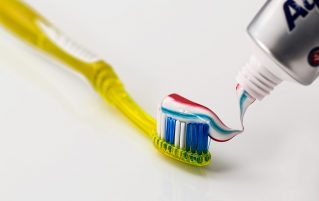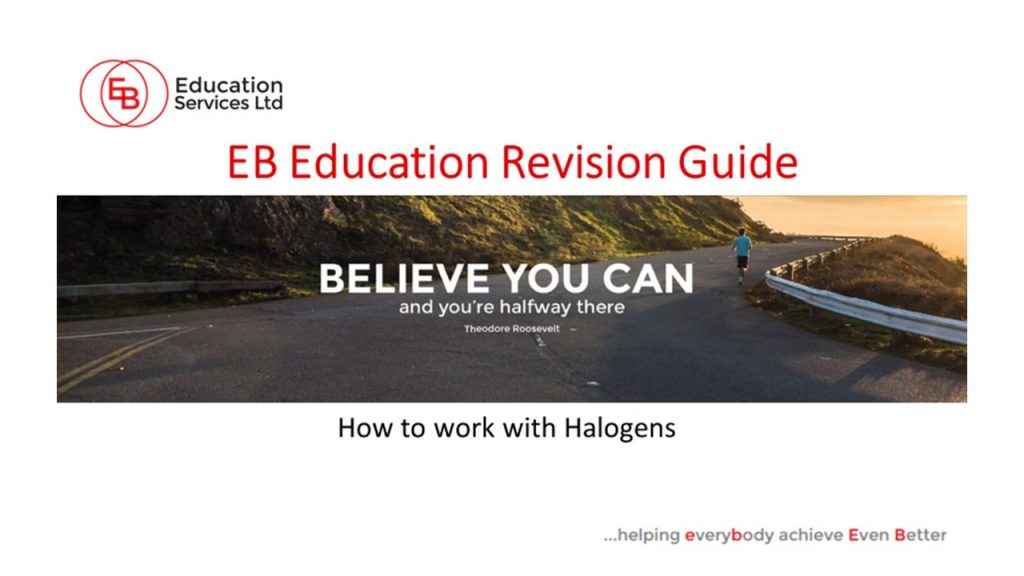GCSE Science students – you need to be able to describe and explain the properties of the halogens. Our new guide, “How to work with Halogens” can help. Included, as always are questions to try, and answers to check your understanding.


Fluorine is one of the halogens, and is very chemically reactive. It needs careful handling as it can explode when it comes into contact with most elements. In fact, fluorine is so reactive and dangerous that a number of scientists were seriously injured, and some even died trying to isolate it. They were known as “Fluorine Martyrs”.
Despite the danger of fluorine, it can be found in small amounts in water. In addition, toothpastes contain added fluorine. This is because it slows down the acid-producing capability of plaque, thus protecting teeth from decay. However, toothpaste is only a fairly recent invention. So how did our ancestors try and prevent the pain of rotting teeth?
The first toothbrushes date back to between 3500-3000 B.C, and the ancient Egyptians. Made out of frayed twigs, these were found preserved in their tombs. The Chinese invented the first natural bristle toothbrush in the 1400’s. Bone and bamboo formed the handles, with pig’s hair being used for the bristles. Europeans copied this, but using horsehairs or feathers instead.
In 1770, a man named William Addis was sent to prison for causing a riot. While serving his prison sentence, he came to the conclusion that using a rag covered in soot and salt to clean your teeth (which is what was done at the time), was not very effective. Using an animal bone he saved from one of his meals, bristles from the prison guards, and some glue, he made a toothbrush. Once released from prison he started a business manufacturing these toothbrushes. By 1840 they were being mass-produced in a number of countries. And Addis was a very rich man!
GCSE Science students – you need to be able to describe and explain the properties of the halogens. Our new guide, “How to work with Halogens” can help. Included, as always are questions to try, and answers to check your understanding.
To see the guide, click on the picture below. 
If you found this useful and think you would benefit from some additional help, please contact us. We welcome guest bloggers.
